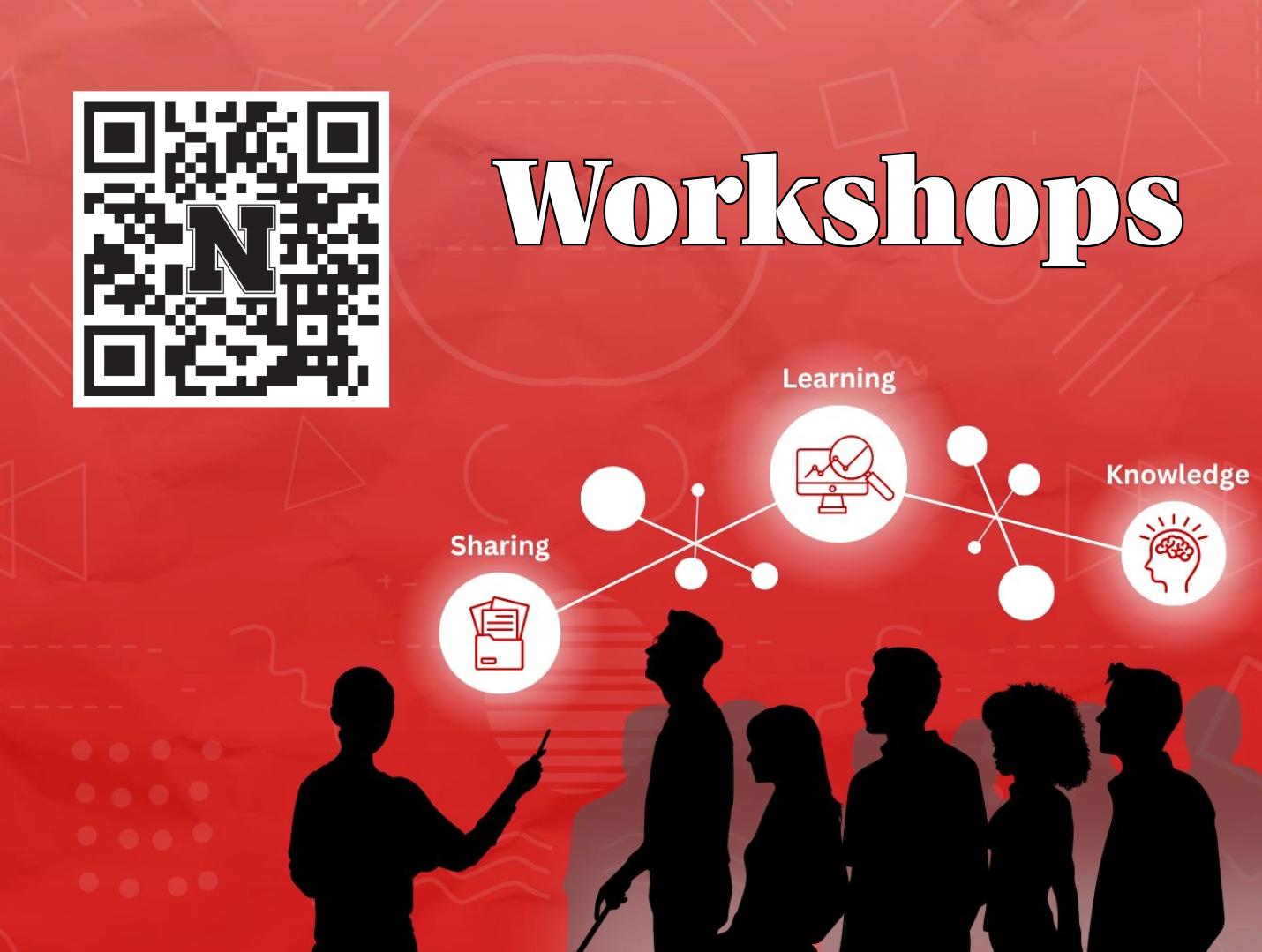
A new monthly discussion series which begins in September is entitled AI & Society Conversation Series and will be one of the highlights for the fall semester workshops offered by the Libraries’ Research Partnerships department. The conversations are meant to help people think about Artificial Intelligence beyond both the hype and the doom. Other topics covered this semester are advanced review, GIS, data management, and more. Many of the sessions are on Zoom and registration is required. All events can be found on the department’s event calendar.
The AI & Society Conversation Series will start with the nuts and bolts of AI and offer tools for thinking about AI, algorithms, and other technologies. Sign up for the conversation topics that interest you. Registrants will receive an accessible resource (reading, video, or podcast) and reflection questions to prepare for the session. During each session, a brief introduction to the topic will be followed by facilitated discussion and opportunities for Q&A.
Planning is underway for the third annual GIS Day Map Competition starting in October. This competition is open to Nebraska students and their designs of maps using public data. The competition culminates in a half-day mini-conference with panelists and presenters. Notices will be published when the competition opens.
These workshops are also a part of the year-long celebration of our Libraries called Pages to Paths, an initiative to raise awareness, celebrate our history, accomplishments, people, and services, and co-create the future with our communities.
Workshops:
Introduction to Advanced Review Methodologies
September 4, 12-1 p.m., Zoom - Registration
This workshop discusses the similarities and differences between the difference between systematic reviews, scoping reviews, rapid reviews, and qualitative evidence syntheses and when you might want to use one over the other.
ArcGIS Online: Maps for Everyone
September 9, 10 a.m., LLS 224 (Witt Room) – Registration
This workshop introduces GIS through an easy to understand and practical tool using only a web browser. ArcGIS Online is a cloud-based mapping and analysis solution, which can be used to create stylish, fully interactive maps or web map applications. Tailored for entry-level researchers, this engaging session aims to equip participants with essential skills to seamlessly connect tabular information to geographic representations. Attendees will gain hands-on experience linking tabular census data to a map. Additionally, you will learn to “georeference” an image by using media layers, which are intended for quick visual overlays.
Introducing SANDY, UNL's Data Repository
September 15, 12-1 p.m., Zoom – Registration
Learn how to share research data via SANDY, UNL's data repository, in a live demo and Q&A session. A Zoom link will be provided to registrants.
AI & Society Conversation Series: AI & Society: Nuts and Bolts
September 19, 12-1 p.m., 224 LLS (Witt Room) - Registration
This session will share a foundation for understanding what AI is, and some approaches for thinking critically about AI in society.
Introduction to comprehensive searching
October 2, 12-1 p.m., Zoom – Registration
Learn how to strengthen your search skills with comprehensive search techniques informed by systematic review methodology.
AI & Society Conversation Series: Data Privacy, Surveillance, and AI
October 17, 12-1 p.m. 224 LLS (Witt Room) - Registration
Using critical tools for thinking about AI in society, this session will focus on threats to privacy posed by AI and consider some solutions to those challenges.
Essentials of Data Management for Graduate Students
October 20, 12-1 p.m., Zoom – Registration
Learn how to successfully manage your research data and create a personal data management plan. A Zoom link will be provided to registrants.
Prepare Your Data for Openness
October 24, Zoom, 11 a.m. – 12:30 p.m. - Registration
Adopting open data practices can improve collaboration, safeguard data, and help researchers get ahead of data sharing requirements from funders and publishers. Data sharing and transparency can benefit science and increase researcher impact. This presentation will provide strategies for meaningfully open data, offer choices in data sharing, describe some limitations of openness, and help researchers get a jump start preparing data for openness. Part of Open Access Week.
Prepare Now to Survive Your Personal Digital Dark Age
November 6, 1-2:30 p.m., Zoom - Registration
All digital files are vulnerable to decay and loss. Sometimes a hard drive fails, or a file becomes corrupted. But we can also lose files due to bad data management habits, obsolete technology, or, paradoxically, because we have too many copies and too many storage options. It is easy to overlook the digital photos, documents, and other files we create in daily life, in our personal research, and in our citizen science and historian scholarship. In recognition of World Digital Preservation Day, this workshop helps participants identify their most valuable computer files and create a plan for backup, self-curation, and preservation.
AI & Society Conversation Series: Accountable Algorithms and AI
November 14, 12-1 p.m., 224 LLS (Witt Room) - Registration
This session will discuss different efforts to ensure that artificial intelligence tools are responsible and transparent.
More details at: https://events.unl.edu/RDE